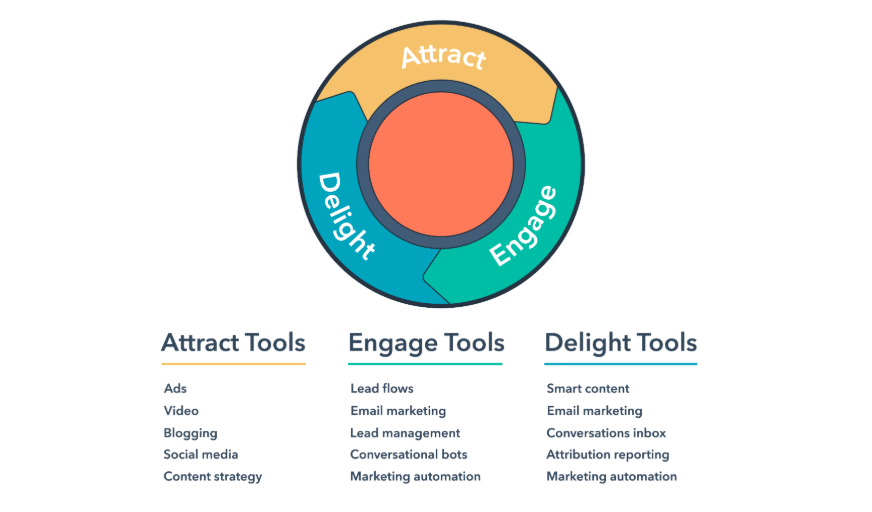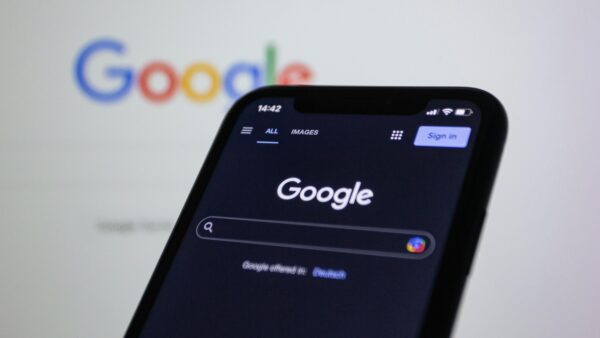
Inbound Marketing vs. Outbound Marketing: What’s the Difference?
If you’ve been following 9 Clouds for a while, you know we’re big believers in inbound marketing. It’s in our DNA, and it affects every piece of content we create for ourselves and our clients.
But what exactly is inbound marketing? Why do we love it so much? And why does inbound marketing work so well?
Stick with us as we answer these questions and more.
Attraction vs. Interruption
Marketing as a whole has evolved greatly over the last century. But in its simplest form, the goal of marketing is the same now as it was in 1920: to acquire leads or sales from the promotion of a product or service.
How we promote our products and services has been the biggest evolution of all. It ultimately comes down inbound marketing versus outbound marketing, or attraction versus interruption.
Why Outbound Marketing Doesn’t Work

Outbound marketing is all about interruption. For years, auto dealers and other businesses have relied on outbound (otherwise known as traditional) marketing strategies, which include:
- Billboards
- Radio advertisements
- TV commercials
- Mass mailers
- Cold calls
While there is still value in outbound marketing strategies, the truth is that outbound marketing on its own just doesn’t work anymore.
Outbound marketing uses traditional marketing tactics to interrupt whatever we are doing to demand that we notice a product or service.
For auto dealers, this could be a commercial of your sales manager interrupting an audience watching This Is Us to “encourage everyone to come on down to the ‘Spring-tastic Sales Event’ to take advantage of rock-bottom prices” . . . blah, blah, whatever.
What’s the problem with this? Well, for one, few people actually enjoy commercial breaks. They’re already annoyed at you for interrupting their favorite TV show.
Second, most people who see this commercial aren’t even in the market to purchase a vehicle. Of the few who are, only a select few will actually be interested in the specific vehicles you sell.
To top it all off, traditional outbound marketing strategies are usually pretty expensive, and their ROI can be difficult to measure.
So while putting your message in front of as many people as possible may sound like a good idea, in the end, you probably aren’t getting any more qualified leads . . . and you’re out of valuable marketing dollars.
Why Inbound Marketing Is Better

Inbound marketing is all about attraction. You won’t attract everyone with inbound marketing — only the people already interested in your product or service. That’s a good thing!
Instead of interrupting people who have no business shopping at your dealership, inbound marketing helps inform current and potential customers with digital marketing methods, including:
- Facebook ads
- Search engine optimization (SEO)
- Google Ads
- Blog posts
- Email marketing
Inbound marketing enables prospects to easily find you when they need you, thanks to the information you’ve made available to them online. In this age of instant gratification, being available with a few strokes of a keyboard will do wonders for your business.
Let’s say you really want to to sell the newest Ford F-150 trucks on your dealership’s lot. Instead of sending a generic mass email to all of your contacts or putting together an expensive television commercial, try out these inbound strategies:
- Send an email to your past truck customers and current truck leads.
- Create a Facebook ad targeted to a Lookalike Audience of truck contacts from your customer relationship management (CRM) system.
- Write a blog post or landing page that highlights the top features of the new F-150, using SEO-friendly keywords so that potential customers searching on Google will find your site.
Want to know one of the best parts about inbound marketing? Inbound strategies cost pennies compared with most traditional marketing effort — and they’re easier to measure.
How Inbound Marketing Works
So how does inbound marketing turn leads into sales? The inbound methodology defined by HubSpot lays out this marketing and sales funnel:

The inbound methodology is made up of three stages:
- Attract
- Engage
- Delight
In the attraction stage, you use top-of-the-funnel marketing efforts such as Facebook ads, blog posts, and overall content strategy to draw people to your website who are most likely to become leads. You can attract these people by giving them relevant content at the right time.
During the engagement stage, you utilize middle-of-the-funnel marketing tactics like retargeting campaigns, landing pages with forms, and calls to action (CTAs) to capture the information of prospects visiting your site.
Once you have a lead’s information, they move into the delight stage. During this stage, you can utilize bottom-of-the-funnel strategies like email marketing and marketing automation to deliver the right message to the right lead at the right time.
By incorporating an inbound strategy into your marketing efforts, you’ll attract new prospects to your dealership, engage with them, and delight them — even after they’ve become customers!
And since 67% of the buyer’s journey is digital, having an inbound strategy is no longer optional. It’s necessary if you want to capture qualified leads.
We’re not telling you that you need to ditch all of your traditional marketing efforts. However, pairing your inbound strategy with your traditional efforts can help you make the most of your overall marketing strategy. (Here’s how!)
Improve Your Inbound Marketing with 9 Clouds
Not to brag, but we do inbound marketing really, really, really well at 9 Clouds. We’re an official inbound marketing partner agency, and our entire staff gets inbound marketing certified through HubSpot.
But enough about us. We want to help you with your digital inbound marketing strategy.
Learn more about inbound marketing tips and tools by subscribing to our blog. And when you want to take your marketing to the next level, schedule your free digital marketing assessment with 9 Clouds. We’ll give you personalized tips on how you can improve your entire web presence!





